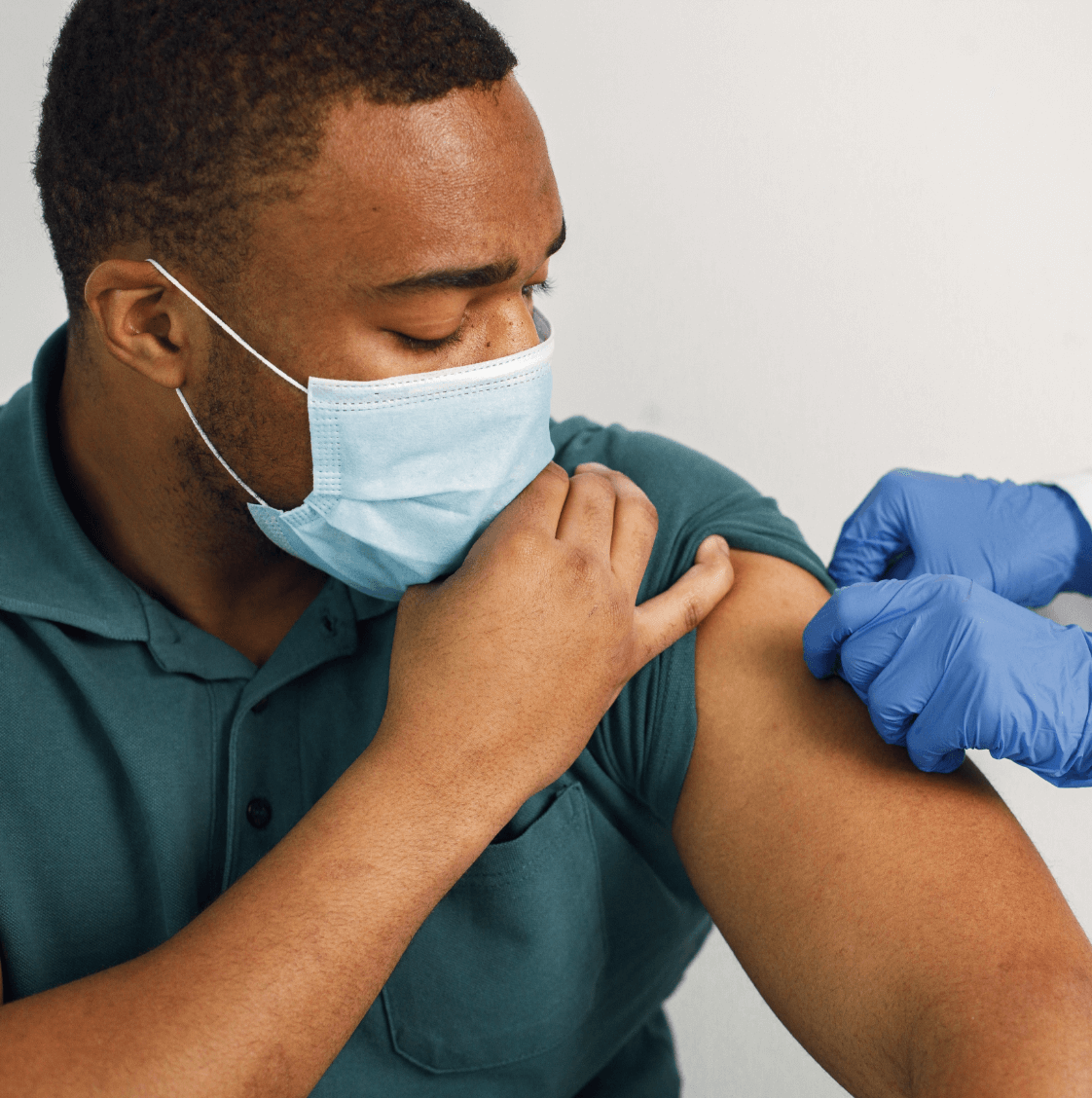In recent years, the topic of vaccinations has become a focal point of discussion, with debates surrounding their safety and efficacy. However, it's crucial to recognise the overwhelming scientific consensus supporting the benefits of vaccinations. Beyond individual protection, vaccines play a pivotal role in safeguarding entire communities from the spread of infectious diseases.
Protecting Yourself
Vaccinations are a powerful tool for preventing the onset of infectious diseases. By exposing the body to harmless forms of pathogens, vaccines stimulate the immune system to produce an immune response without causing the disease itself.
- Preventing illness and severity: The primary goal of vaccines is to prevent illnesses by preparing the immune system to recognise and combat specific pathogens. By doing this, your immune system has a lasting defence, offering protection against future encounters with the same or similar infectious agents.
- Lifespan protection: From infancy through adulthood and into the senior years, vaccines are tailored to address the specific health risks associated with different age groups. This ensures a continuous and comprehensive shield against a range of diseases at various life stages.
- Reducing disease transmission: By limiting the transmission of pathogens, vaccines play a pivotal role in preventing outbreaks and establishing a collective barrier against the rapid dissemination of infectious agents.

Community Immunity
Community immunity emphasises the collective strength of a community in the face of infectious diseases. It works as a communal shield, offering protection not only to those who have immunity against diseases, but also to people who, for medical reasons, cannot receive vaccinations, while also reducing transmission on a global scale.
- Preventing transmission: When a significant proportion of the population is immune to a specific disease, it creates a barrier to the pathogen transmission. This prevents the ability of the disease to spread easily from person to person. The more people who are vaccinated, the greater the level of immunity within the population, leading to a decreased likelihood of outbreaks and the potential for diseases to establish a foothold.
- Protecting the vulnerable: People who are unable to receive vaccinations due to medical conditions, such as allergies or compromised immune systems, are particularly vulnerable to severe consequences of infectious diseases. Community immunity acts as a protective cocoon around these people, reducing the likelihood of exposure to the infectious agent.
- Breaking transmission chains: Herd immunity minimises the reservoirs of pathogens within the community by interrupting the transmission chains of infectious diseases. This makes it more challenging for the disease to find susceptible people, and reduces the overall impact on public health.
- Enhancing global security: By achieving high vaccination rates on a global scale, the spread of infectious diseases can be shortened, contributing to global health security and preventing international transmission.
Preventing and Eliminating Diseases
The success stories of disease eradication and control highlight the transformative impact of vaccines in preventing, mitigating, and ultimately eliminating deadly infections.
- Polio once posed a global threat, particularly affecting children and causing paralysis. While complete eradication of polio has not yet been achieved, Australia was official declared polio-free in 2000 due to high vaccination coverage and disease surveillance and response systems.
- Measles and rubella, highly contagious viral infections, have been the focus of extensive vaccination campaigns. Vaccination efforts have led to significant declines in measles-related deaths and have brought the world closer to achieving complete elimination.
- Smallpox was officially eradicated in 1980 through a global vaccination campaign led by the World Health Organisation. This monumental achievement demonstrates the power of vaccines to eliminate diseases and save lives on a global scale.


Global Health Security
During the COVID-19 pandemic, multiple vaccines were developed, tested, and authorised for emergency use in an unprecedented timeframe, highlighting the importance of vaccines in global health security.
- Rapid response to new diseases: The speed at which vaccines can be developed and deployed is crucial in controlling the spread of new infectious diseases. The ordinary timeline for vaccine development has often spanned years, but recent advancements in vaccine technology and collaborative efforts have enabled the creation of vaccines in record time.
- Enhancing preparedness and resilience: The ability to swiftly create and distribute vaccines is not only about responding to ongoing pandemics but also about building a robust infrastructure for future threats. The lessons learned from the COVID-19 response emphasise the importance of investing in research, development, and manufacturing capabilities to enhance our preparedness for potential future pandemics.
- Global cooperation and information sharing: Addressing pandemics requires a coordinated global effort. The exchange of information, data, and resources across borders is essential for monitoring and responding to emerging threats.